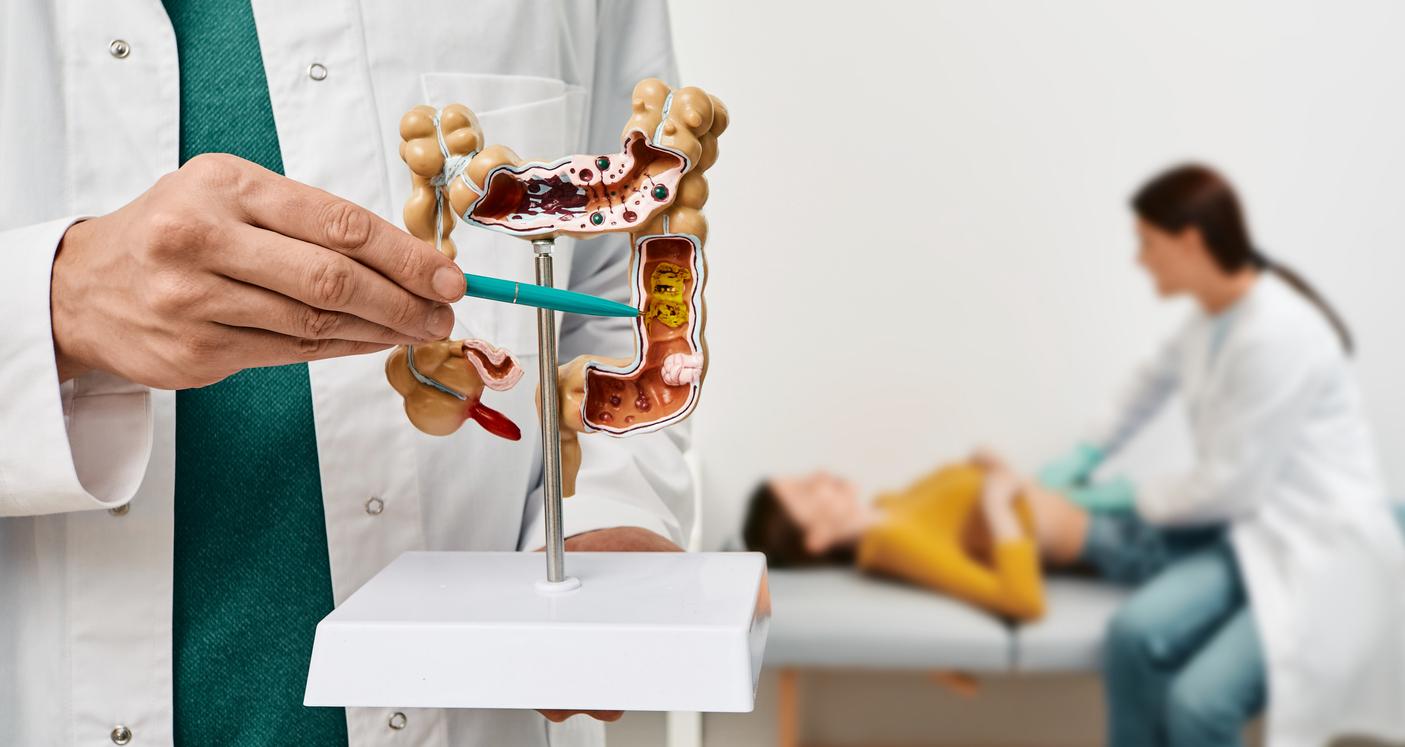AMG 714 (anti-IL-15 monoclonal antibody) potentially protects celiac patients against unintentional exposure to gluten, according to a study to be presented at the Digestive Disease Week (DDW), organized from June 2 to 5 in Washington, United States. Unintentional exposure to gluten is common in celiac patients. It causes pain in the intestine and diarrhea.
In this randomized, double-blind study, researchers at the University of Tampere in Finland compared the effects of AMG 714 at two doses (150 mg and 300 mg) with placebo in patients with celiac disease over a 12 week period. The drug was administered six times by subcutaneous injection. A subset of patients received a high dose of gluten of approximately 2.5 grams per day for 10 weeks.
A decrease in symptoms
The results of the study showed reduced effects after contact with gluten in both groups, including patients who consumed 2.5 grams of gluten daily.
“While AMG 714 did not completely prevent mucosal damage in the high gluten exposure group, a decrease in intestinal inflammation was observed as well as a reduction in intestinal disorders as in the other group. “, explained the authors of the study. In addition, “no symptoms associated with accidental gluten consumption were observed in the other participants”.
“A gluten-free diet has been the only treatment option for patients with celiac disease to date, but it is almost impossible for them to completely and indefinitely avoid gluten,” said Markku Maki, principal investigator and professor for Faculty of Medicine and Biosciences at the University of Tampere in Finland. “On average, half of patients with celiac disease following a gluten free diet continue to have inflammation or damage to the mucous membranes and a third have recurring symptoms, which is why we are investigating drugs to help prevent the consequences of hidden gluten. ”
Read also :
The perfect gluten-free diet … does not exist
Gluten sensitivity: not to be confused with intolerance!
Celiac disease is believed to promote anorexia















